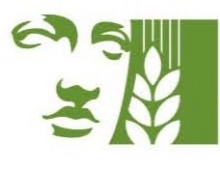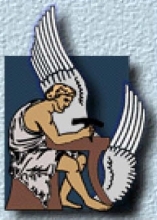Institutions
Three Greek research and educational institutions participate in AgroStrat:
- The Soil Science Insitute of Athens - Hellenic Agricultural Organization DEMETER
- The Institute of Mediterranean Studies - Foundation of Research and Technology
- The Technical University of Crete
Soil Science Insitute of Athens - Hellenic Agricultural Organization DEMETER
 Hellenic Agricultural Organisation “DEMETER” is the national body responsible for agricultural research and technology in Greece, sponsored by the Ministry of Agriculture. ELGO-DEMETER with its 300 Research scientists spread in its Research Institutes and Stations throughout Greece is also in charge of research for technological improvement and development in agricultural, forest, and fish production, it is also concerned with topics of veterinary, management of marine resources, soil science, land reclamation, processing and preservation of agricultural products, a.o.
Hellenic Agricultural Organisation “DEMETER” is the national body responsible for agricultural research and technology in Greece, sponsored by the Ministry of Agriculture. ELGO-DEMETER with its 300 Research scientists spread in its Research Institutes and Stations throughout Greece is also in charge of research for technological improvement and development in agricultural, forest, and fish production, it is also concerned with topics of veterinary, management of marine resources, soil science, land reclamation, processing and preservation of agricultural products, a.o.
Soil Science Institute of Athens is integrated into ELGO-DEMETER and includes a specialized scientific staff of significant research capacity with modern laboratory and field infrastructure. The SSIA research team have great experience in coordinating of and participating in EU projects (INCO-DEV, LIFE, FP5, FP6, FP7) and has involved in projects related to soil surveying, reclamation of saline and alkaline soils and soil analysis for fertilizing recommendations. Its research divisions are: Pedology, soil fertility and plant nutrition, soil physics-chemistry-biology, pollution of soil, plants and irrigation water, GIS. The activities of Institute cover several areas of studying and managing natural resources such as: soil erosion, conservation and protection, digital soil mapping, national program of crop fertilization, soil pollution with heavy metals, soil remediation, nitrate pollution, use of sewage sludge in agriculture, climate change, sustainable agriculture. Due to the participation of SSIA in many European and national research projects as well as in studies order by private and public sectors, the scientists of SSIA have great experience in project management, experimentation organizing, soil sampling, results evaluations, demonstration activities. The chemical laboratory of SSIA is well equipped and accredited according to ISO 17025.
Contact details
Dr. Maria Doula (Project Coordinator-Benaki Phytopathological Institute)
1 Sof. Venizelou str., 14123 Likovrisi, Greece
tel.: +30 210 2832031, Fax: +30 210 2842120
e-mail: mdoula@otenet.gr
web site : http://www.ssia.gr
The Institute of Mediterranean Studies - Foundation of Research and Technology
 Institute for Mediterranean Studies (IMS) was founded in 1985 (by Presidential Decree 7/21/1/85) and began to operate in its current organisation form in 1986. It is one of the five Institutes, which with Crete University Press, go to make up the Research Centre of Crete (RCC). It is among the scientific research units of the Foundation for Research and Technology (FORTH), which is one of the two largest research foundations in Greece.
Institute for Mediterranean Studies (IMS) was founded in 1985 (by Presidential Decree 7/21/1/85) and began to operate in its current organisation form in 1986. It is one of the five Institutes, which with Crete University Press, go to make up the Research Centre of Crete (RCC). It is among the scientific research units of the Foundation for Research and Technology (FORTH), which is one of the two largest research foundations in Greece.
Since 1996, the Laboratory of Geophysical - Satellite Remote Sensing & Archaeo-environment of the Institute for Mediterranean Studies (I.M.S.) / Foundation of Research & Technology (F.O.R.T.H.) has provided valuable services in the areas of geophysical prospection, satellite remote sensing, Geographical Information Systems (GIS) and archaeo-environment and has been widely recognized due to the quality of the services provided, the results of the research projects carried out and the training of students and professional archaeologists.
The Laboratory is member of EPOCH (European Network of Excellence in Open Cultural Heritage), of AGILE (Association of Geographic Information Laboratories of Europe) and of EARSEL (European Association of Remote Sensing Laboratories).
Services and collaborations of the Laboratory have been expanded including a large number of research and university foundations from Greece, Australia, Belgium, France, Italy, USA, China, Cyprus, China, Sweden, Island, Lithuania, Hungary, Bulgaria, Germany, Spain, a.o. Since 1996, more than 100 research projects have been carried out.
The Lab is conducting innovative research related to Environmental and Cultural Geographic Information Systems and Web-GIS applications and has developed a number of internet accessible applications, with sofisticated WEB_GIS modules and databases.
Contact details
Dr. Apostolos Sarris (leader of IMS team)
130 Nikiforou Foka, 74100 Rethymno, Crete, Greece
tel.: +30 28310 25146 fax: +30 28310 25810
e-mail: asaris [at] ret.forthnet.gr; asaris [at] ims.forth.gr
web site: http://www.ims.forth.gr
Technical University of Crete
 Technical University of Crete (TUC), founded in 1977, is a Greek academic institution that educates engineers in a broad range of scientific and technical activities. Over the years, TUC has established itself as an internationally acclaimed research centre and currently its six departments (Sciences, Architecture, Production and Management, Electrical and Electronic, Environmental as well as Mineral Resources Engineering) employ a total of 920 people while roughly 2900 undergraduate and 800 postgraduate students attend its courses. The Laboratory of Waste Management and Soil Decontamination, http://www.mred.tuc.gr/p013215_UK.htm, of the Department of Mineral Resources Engineering has considerable research experience (and the required infrastructure) in the areas of soil, effluent and groundwater decontamination, waste management, recycling, risk analysis and life cycle analysis. It is equipped with all facilities and software to carry out all activities required by the present project. Professor Konstantinos Komnitsas, holding a PhD degree in Hydrometallurgy, is the director of the Laboratory. He has experience in the fields of metallurgy, hydro- and bio-hydrometallurgy, waste management and valorization, new materials, soil decontamination, environmental, risk assessment and LCA studies. The Laboratory of Waste Management and Soil Decontamination has participated over the last years in a number of related projects while Prof Komnitsas has participated in more than 50 research projects (funded from EC and national sources, while in more than 10 as co-ordinator).
Technical University of Crete (TUC), founded in 1977, is a Greek academic institution that educates engineers in a broad range of scientific and technical activities. Over the years, TUC has established itself as an internationally acclaimed research centre and currently its six departments (Sciences, Architecture, Production and Management, Electrical and Electronic, Environmental as well as Mineral Resources Engineering) employ a total of 920 people while roughly 2900 undergraduate and 800 postgraduate students attend its courses. The Laboratory of Waste Management and Soil Decontamination, http://www.mred.tuc.gr/p013215_UK.htm, of the Department of Mineral Resources Engineering has considerable research experience (and the required infrastructure) in the areas of soil, effluent and groundwater decontamination, waste management, recycling, risk analysis and life cycle analysis. It is equipped with all facilities and software to carry out all activities required by the present project. Professor Konstantinos Komnitsas, holding a PhD degree in Hydrometallurgy, is the director of the Laboratory. He has experience in the fields of metallurgy, hydro- and bio-hydrometallurgy, waste management and valorization, new materials, soil decontamination, environmental, risk assessment and LCA studies. The Laboratory of Waste Management and Soil Decontamination has participated over the last years in a number of related projects while Prof Komnitsas has participated in more than 50 research projects (funded from EC and national sources, while in more than 10 as co-ordinator).
Contact details
Prof. Konstantinos Komnitsas (leader of TUC team)
Ag. Markoustr., Agiou Titou Sq., 73100 Chania, Crete, Greece
tel.: +30 28210 37686
e-mail: komni@mred.tuc.gr
web site: http://www.tuc.gr ; http://www.mred.tuc.gr/p013215_UK.htm